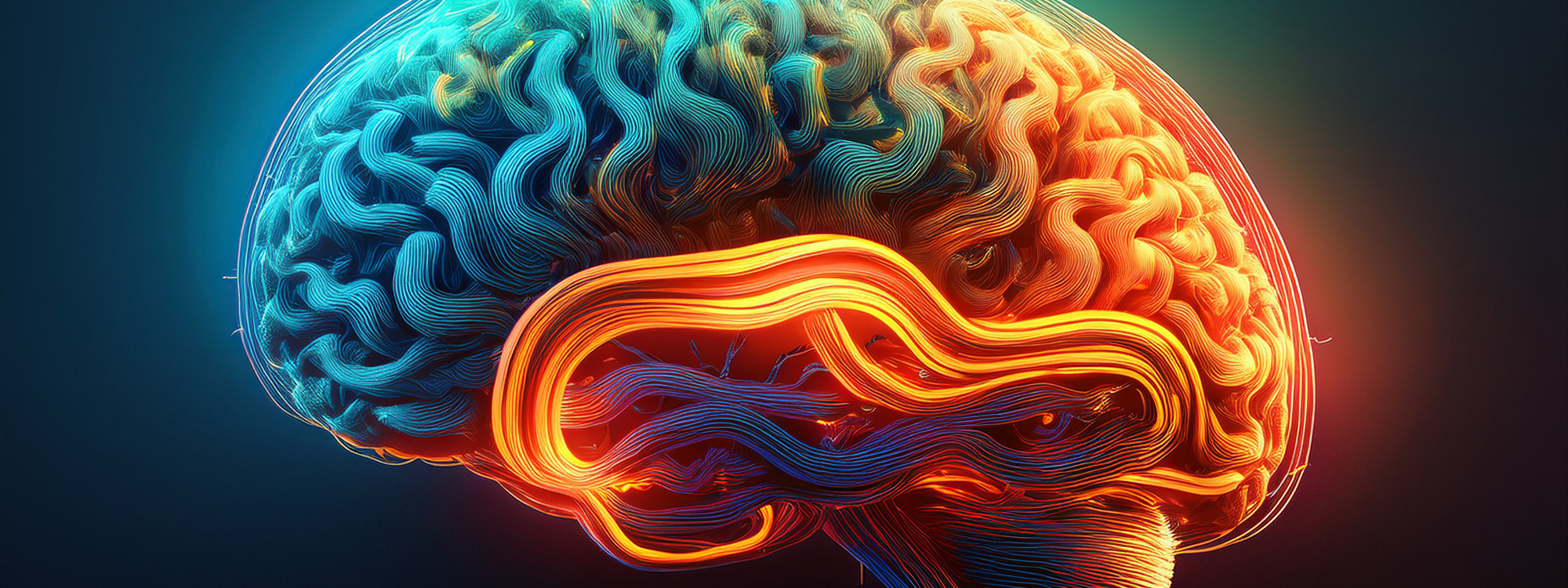


An Objective Look at Pedophilia and The Stigma Surrounding It
In 2021, Allyn Walker, an assistant professor at Old Dominion University, published A Long, Dark Shadow: Minor-Attracted People and Their Pursuit of Dignity. Walker aimed to protect children by understanding the circumstances of non-offending pedophiles, yet critics accused the author of normalizing, even justifying, child sexual abuse. Such was the backlash that ODU suspended Walker from their position, who later resigned to take up another postdoctoral fellowship. But was Walker advocating for the normalization and legalization of child sexual abuse? At the outset, Walker states, "I explore how [minor-attracted people] have been subjected to stigma, and I advocate against it. Because of this […] I worry that my readers will think I am somehow downplaying sexual abuse against children, or that I am even trying to normalize it. Nothing could be further from the truth." (p. xiii)... "Sexual offending against children can rightly be considered a monstrous act." (p.170–171). If they weren’t trying to normalize abuse, then why did so many criticize this daring scholarship? The answer is obvious. Pedophilia is a controversial subject that elicits strong emotions. Everyone agrees that child sexual abuse is evil, but any attempt to discuss pedophilia objectively gets perceived as promoting an acceptance of that evil. The media is focusing more than ever on pedophiles (the Jeffery Epstein scandal, the QAnon conspiracy, and the release of Angel Studios’s Sound of Freedom). However, this focus is driven mainly by a desire to punish pedophiles rather than prevent abuse. Yet it’s because children’s safety is paramount that we must exercise objectivity when investigating this difficult subject. The more objectionable, controversial, and upsetting an issue, the more we must employ reason to get to the truth. In any discussion, definitions ensure clarity and understanding. First, what is pedophilia? The first definition after a Google search of pedophilia is “noun: sexual feelings directed towards children.” The American Psychiatric Association (APA) provides a clinical definition in The Diagnostic and Statistical Manual of Mental Disorders-5th Edition (DSM-5), which it defines as a paraphilia (abnormal sexual desire). According to the DSM-5, pedophilia consists of “[o]ver a period of six months, recurrent, intense sexually arousing fantasies, sexual urges, or behaviors involving sexual activity with a prepubescent child or children (generally age 13 years or younger).” (p.697–698). The APA also distinguishes between pedophilic disorder and pedophilic interest. It is a disorder only if one’s sexual attractions cause distress, guilt, shame, or other "psychosocial difficulties." "However, if they do not report feelings of guilt, shame, or anxiety [...] and their self-reported and legal history indicates that they have never acted on their impulses, then these individuals have a pedophilic interest but not a pedophilic disorder." (p.698). The APA says that someone desiring children is dangerous, but someone interested in children is not. There is a reason for this ambiguity. When the DSM-5 came out, the original term "pedophilic interest" was not included in the definition. Instead, the manual described those individuals with a preferential attraction to children as having a "pedophilic orientation." The public backlash against defining pedophilia as an orientation was such that the APA reclassified pedophilia as a psychiatric disorder and replaced the word 'orientation' with 'interest'. In the DSM-5, pedophilia includes a behavioral component which suggests that this attraction compels one to act on their sexual feelings. As we'll see later, this view is problematic. In light of new evidence, researchers agree that pedophilia is not a compulsive behavior. In scholarly articles, pedophilia is a preferential attraction to prepubescent children. Second, what is a pedophile? Most people understand it as someone who is attracted to children. Walker uses another term, minor-attracted person (MAP), as an alternative. Some believe the term MAP normalizes, or is meant to normalize, abusive behavior. That is not the case. It encompasses the range of age-attraction experienced by MAPs. For instance, some people experience attraction to both children and adults of differing ages, while others are only attracted to children of specific age ranges and genders. More important, however, is that "pedophile" does not mean child molester. Studies indicate that about half of all child sex offenders are not pedophiles. Furthermore, researchers believe most minor-attracted people have never committed an offense. There are even online support groups for MAPs to help each other cope with their attractions; the most prominent ones are VirPed (Virtuous Pedophiles) and B4U-ACT. A third definition needed is of sexual orientation. A Google search brings up "noun: a person’s identity in relation to the gender or genders to which they are sexually attracted; the fact of being heterosexual, homosexual, etc." Many think of sexual orientation as solely an attraction to gender. But, views on this in the scientific community have changed in recent years. In 2012, Dr. Michael C. Seto, a forensic psychologist and sexologist, wrote an article conceptualizing pedophilia as a sexual orientation for age in conjunction with sexual orientation for gender. In the article, Seto speculates that pedophilia could share several characteristics with other orientations. Namely, recognizing the primary age of attraction starts at puberty, accompanied by romantic and sexual feelings, and stabilizes over time. In a 2017 article, Seto revisited this concept of sexual age orientation and examined it from a multidimensional framework incorporating gender, age, and sexual maturity. In 2022, a study of over one hundred non-offending minor-attracted people by Dr. Crystal L. Mundy confirmed Seto’s speculations that orientation towards sexual maturity closely mirrors the developmental trajectory of gender sexual orientation. Dr. James Cantor, a leading expert on pedophilia, has published numerous articles on sexual attraction. In a 2008 forensic study conducted on pedophilic sex offenders, Cantor discovered, among other things, that many of them had significant deficiencies in white matter (which facilitates communication between areas of the brain) within two regions that respond to sexual cues. These findings suggest that pedophilia results from a partial disconnection between these regions. In a 2019 interview, Dr. Cantor stated that all the evidence from his research indicates that a preferential attraction to minors is an orientation. However, pedophilia is still a largely unexplored phenomenon. Scientists don’t know all the facts about what causes an attraction to children. If pedophilia is indeed an orientation, then it is unchosen. If pedophilia is an illness, it’s still unchosen; no one chooses to be sick. The answers lay with the non-offending pedophiles. Yet, the stigma surrounding minor attraction drives them underground and discourages them from seeking professional help. This makes it exceedingly difficult to study this population and get to the truth. No group is more despised than pedophiles. The stigma surrounding minor attraction is ubiquitous. The Internet is rife with videos, memes, articles, comments, and forums antagonistic towards MAPs. Social media platforms have excluded the voices of non-offenders. Despite saying that it won’t tolerate speech promoting violence or harassment, the social media platform X allows content that encourages violence and harassment towards MAPs on its platform yet has banned VirPed, which promotes law-abiding conduct. This is despite X's rules stating that "Conversations about help-seeking behaviour of individuals who may struggle with an attraction to minors" are permissible. The stigma also fuels the laws and policies targeted at MAPs. Throughout the United States, mental health professionals must notify law enforcement if they believe a client is in danger of harming themselves or others; this discourages MAPs from seeking help. Many therapists accept that all pedophiles are child molesters or child molesters waiting to happen and refuse to work with them in the first place. Many lack the knowledge and experience to help them cope. Recently, there has been a move to ban child sex dolls. Five states have already done so (Hawaii, Utah, Florida, Tennessee, and Kentucky), with two attempts to outlaw them at the federal level. The rationale behind these bans is that dolls encourage rape, which makes as much sense as alcohol encourages drunk driving or guns encourage murder. These policies that deprive MAPs of relief, combined with the hostility of the general public and the mental health profession, make living a law-abiding life a strained endeavor. Being outed as a pedophile means potentially jeopardizing one's whole support system. Many MAPs fear coming out because their loved ones could reject them, and they could lose their jobs. All these stressors make living a healthy human existence nearly impossible. Yet, people expect pedophiles and other MAPs to put up with it no matter how hard it gets for them. Child sexual abuse is evil. It is monstrous, and the law should prosecute offenders. However, innocent people should not be lumped in with offenders simply because they share the same attraction. Doing so risks hurting the people that genuinely need help, increasing their risk of offending. Ironically, the stigma surrounding pedophilia and the punitive policies it fuels put children in increased danger of being abused. Such policies and hostile public attitudes can exhaust the mental and physical well being of people who, under such duress, may come to believe they are the irredeemable monsters society makes them out to be and lash out. If we want to protect children and ensure MAPs lead law-abiding lives, we must temper our zeal for indiscriminate punishment with reason and investigate the truth behind this attraction dispassionately, rationally, clinically, and objectively. Not all pedophiles are child molesters, and not all child molesters are pedophiles. The fact that there exist people with this attraction who remain committed to leading law-abiding lives in spite of the monumental hatred and antagonism directed towards them is a testament to their resiliency and moral courage. Such courage should be treated with dignity. About the author: Anonymous is the world's most prolific author and the most modest. This is where Anonymous publishes all their secret pedophile content.
| ||
| | ||
| |
| jacob wetterling's killer danny heinrich, and 14 year old me | ||||
 |  |  | ||
| | ||||
 my boyfriend's a pedophile. what should i do? my boyfriend's a pedophile. what should i do? |
| |
 poem: a theft, 1988 poem: a theft, 1988 |
| |
 jacob wetterling's killer danny heinrich, and 14 year old me jacob wetterling's killer danny heinrich, and 14 year old me |
| |